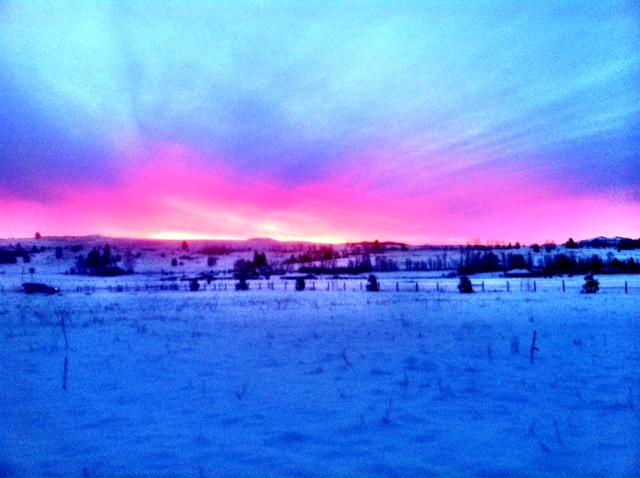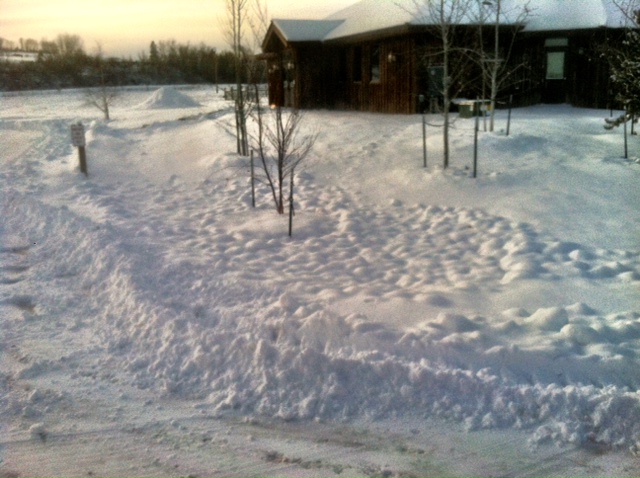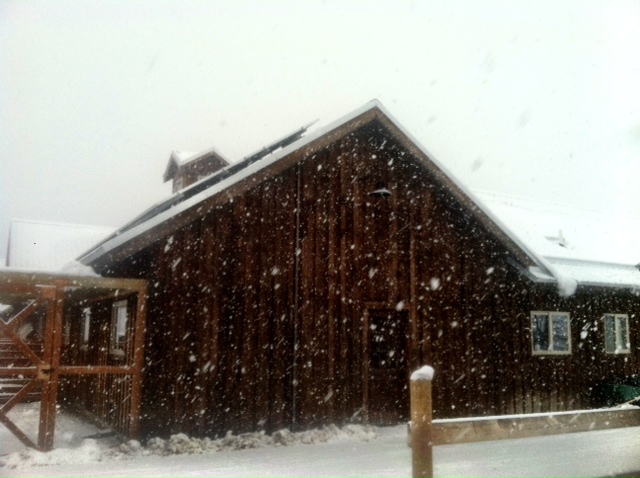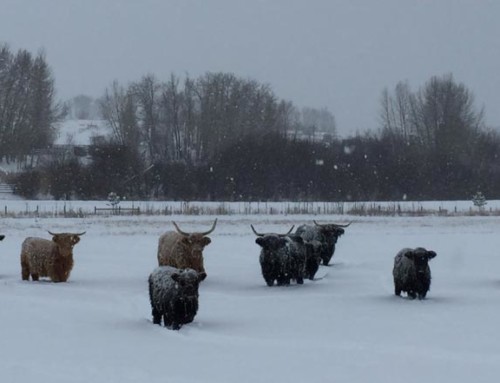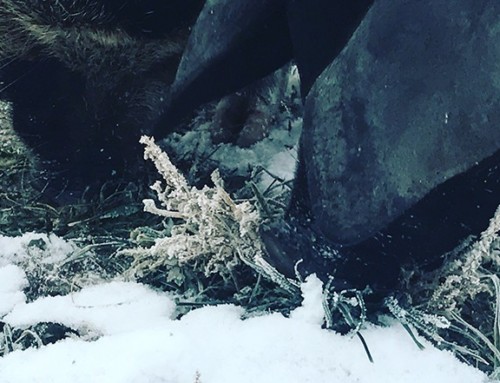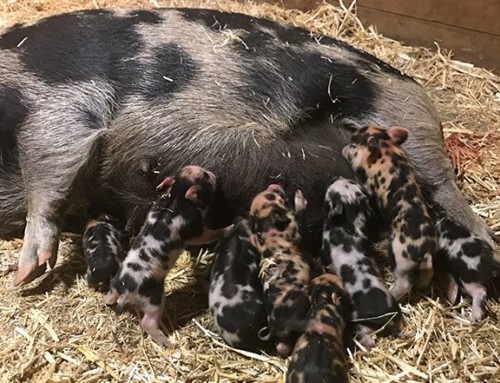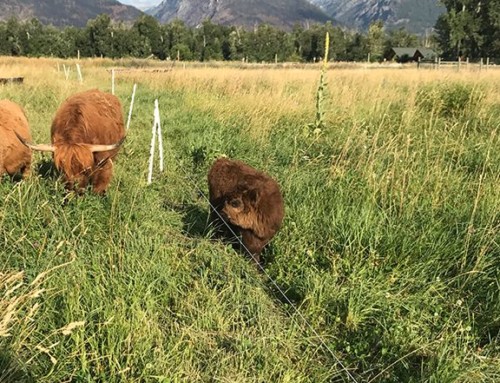Wintertime in Montana likes to humble us at ABC Acres, letting us know it is best to make our plans in pencil. We may have discussed all that we were going to get done the previous day, but waking up to a thick blanket of snow quickly changes our tasks, and reminds us that we have to be flexible and responsive to changing conditions on the farm. This is something we find to be all the more relevant with how the local climate has been changing over the past 15 or so years.
I set out to feeding the animals, and was immediately thankful for the new snow boots I had bought the week prior. Tim was on the ATV, quickly trying to remove snow from the main courtyard area before the arriving construction workers packed it down, and before his fingers were frozen solid! As I marched though the snow, pushing the cart full of chicken feed and hay against the resistance of the 4+ inches of wet snow, I knew I would be using the tractor and back blade to clear the roadways soon. This gave me some comfort, knowing the afternoon trip with the cart would be much less strenuous. The chickens voiced their displeasure with the snow as I let them out of their coop, doing my best to coax them out onto the pasture with some grain.
After spending the remainder of the morning plowing and shoveling snow, Tim and I began talking about the readjustment of our task schedules. We found some solace in discussing design plans for the spring, but we also wanted to remain rooted in our present circumstances. We remarked at how beautiful the fresh snowfall looked as it gently covered the ground, trees, and shrubs in a pure layer of white. The snow is more to us as well; it is a resource of moisture, to be sure, but it is also our teacher.
The snow and its subsequent melting will teach us where we have designed well with it in mind, such as our crater garden terraces. I looked at the flat terraces on our hillside in satisfaction, knowing that the blanket of snow will be received gently into the buried wood under the soil of our “hugel-terraces,” charging them up with moisture that will be stored until it is needed for a flush of spring growth. A similar validation occurred when I was dragging snow to the sides of the road and parking lot of the school with the back blade of the tractor. As the snow flew off the driveway of the school, I saw it fall into our sunken rain garden retention basin. We designed the driveway and parking lot to shed rain and snow melt into these basins, keeping our drive and parking from becoming a sloppy mess. The basins also water our birch trees and help to recharge the groundwater on the farm.
However, the snow didn’t have all, “atta-boys,” for our design work. We don’t take any offense at this; we instead align ourselves with the permaculture design principle of, “apply self-regulation and accept feedback.” In this case, the feedback we are accepting is from observing the snow. We noticed areas around some of the farm buildings where some of the snow would collect in piles and melt closer to the foundations of the buildings than would be good long-term. Notes were made, and strategies and implementations began to be imagined for transforming a liability into an asset. In permaculture, we have an attitudinal principle of, “the problem is the solution.” For example, instead of trying to get rid of the snow to the proverbial away, we seek to redirect it with simple earthworks where we can create a place of life with the currently mismanaged resource. So, I thought of creating a small rain garden near the shop that will take moisture that could cause a problem with our shop, and instead grow shrubs, herbs, and flowers to provide food and habitat for birds and beneficial insects here on the farm.
By the close of the day, we were a little stiff-backed, but our minds were a bit more enlightened and edified. We were also a bit more thankful for what we do; having the opportunity to intentionally interact with nature and the rhythms of the seasons teaches us a little more daily, and is not something we take for granted. Our hope and belief is applying these lessons will enrich not only our lives, but also the lives of others as well.
Blessings,
Grant

